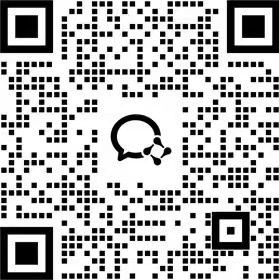
剑桥雅思8阅读Test1Passage1原文翻译
剑桥雅思8阅读Test1Passage1这篇文章描述了时间测量的发展历程,强调了时间对人类社会的重要性以及现代科技对时间测量的影响。
这篇文章概述了人类对时间的测量和记录的历史。从巴比伦人使用自然周期来制定日历开始,到埃及人根据月亮循环创建具有12个月的市政日历,再到机械钟的发明,文章介绍了时间测量的演变过程。最后,文章指出现代科技时代的高精度计时仪器对人们的生活产生了重要影响。
段落A According to archaeological evidence, at least 5, 000 years ago, and long before the advent of the Roman Empire, the Babylonians began to measure time, introducing calendars to co-ordinate communal activities, to plan the shipment of goods and, in particular, to regulate planting and harvesting. They based their calendars on three natural cycles: the solar day, marked by the successive periods of light and darkness as the earth rotates on its axis; the lunar month, following the phases of the moon as it orbits the earth; and the solar year, defined by the changing seasons that accompany our planet’s revolution around the sun. | 根据考古证据,至少在5000年前,也就是罗马帝国出现之前很久,巴比伦人开始测量时间,引入日历来协调社会活动、计划货物装运,尤其是调控种植和收获。他们的日历基于三个自然周期:太阳日,由地球绕轴旋转而产生的光明和黑暗交替的时间段;月亮月份,根据月球绕地球轨道上的相位变化;以及太阳年,由地球绕太阳公转伴随的季节变化所定义。 |
段落B Before the invention of artificial light, the moon had greater social impact. And, for those living near the equator in particular, its waxing and waning was more conspicuous than the passing of the seasons. Hence, the calendars that were developed at the lower latitudes were influenced more by the lunar cycle than by the solar year. In more northern climes, however, where seasonal agriculture was practised, the solar year became more crucial. As the Roman Empire expanded northward, it organised its activity chart for the most part around the solar year. | 在人造光发明之前,月亮对社会影响更大。特别是对居住在赤道附近的人来说,月亮的盈亏更加显著,比季节的更迭更受关注。因此在较低纬度地区开发的日历更多地受到月亮循环的影响,而不是太阳年。然而,在更北方进行季节农业的地区,太阳年变得更加重要。随着罗马帝国向北扩张,它主要围绕太阳年组织了自己的活动计划。 |
段落C Centuries before the Roman Empire, the Egyptians had formulated a municipal calendar having 12 months of 30 days, with five days added to approximate the solar year. Each period of ten days was marked by the appearance of special groups of stars called decans. At the rise of the star Sirius just before sunrise, which occurred around the all-important annual flooding of the Nile, 12 decans could be seen spanning the heavens. The cosmic significance the Egyptians placed in the 12 decans led them to develop a system in which each interval of darkness (and later, each interval of daylight) was divided into a dozen equal parts. These periods became known as temporal hours because their duration varied according to the changing length of days and nights with the passing of the seasons. Summer hours were long, winter ones short; only at the spring and autumn equinoxes were the hours of daylight and darkness equal. Temporal hours, which were first adopted by the Greeks and then the Romans, who disseminated them through Europe, remained in use for more than 2, 500 years. | 在罗马帝国出现之前的几个世纪,埃及人制定了一个由12个月组成的市政日历,每月30天,再加上五天来逼近太阳年。每十天为一个周期,以被称为十日星座的特定星群的出现为标志。当重要的尼罗河年度洪水即将到来时,可以看到12个星座横跨天空,这对埃及人具有宇宙的意义。埃及人基于这12个星座的重要性,发展了一个系统,将每个黑暗时段(后来是每个白昼时段)分为12个相等的部分。这些时段被称为时间小时,因为它们的持续时间随着季节的更迭而变化。夏季小时长,冬季小时短;只有在春分和秋分两个日子,白昼和黑暗的小时数才相等。时间小时首先被希腊人采纳,然后由罗马人使用,并传播到整个欧洲,使用超过2500年。 |
段落D In order to track temporal hours during the day, inventors created sundials, which indicate time by the length or direction of the sun’s shadow. The sundial’s counterpart, the water clock, was designed to measure temporal hours at night. One of the first water clocks was a basin with a small hole near the bottom through which the water dripped out. The falling water level denoted the passing hour as it dipped below hour lines inscribed on the inner surface. Although these devices performed satisfactorily around the Mediterranean, they could not always be depended on in the cloudy and often freezing weather of northern Europe. | 为了在白天追踪时间小时,发明家们创造了日晷,它通过太阳的阴影长度或方向来表示时间。水钟则是夜间测量时间小时的设计。最早的水钟是一个有一个靠近底部的小孔的容器,水从中滴出。不断下降的水位表示时间经过,当水位低于内表面上刻有小时线的位置时。尽管这些装置在地中海地区表现良好,但在北欧多云而且经常寒冷的天气中,它们不能始终可靠。 |
段落E The advent of the mechanical clock meant that although it could be adjusted to maintain temporal hours, it was naturally suited to keeping equal ones. With these, however, arose the question of when to begin counting, and so, in the early 14th century, a number of systems evolved. The schemes that divided the day into 24 equal parts varied according to the start of the count: Italian hours began at sunset, Babylonian hours at sunrise, astronomical hours at midday and ‘great clock’ hours, used for some large public clocks in Germany, at midnight. Eventually these were superseded by ‘small clock’, or French hours, which split the day into two 12-hour periods commencing at midnight. | 机械钟的出现意味着虽然可以调整以保持时间小时,但它更适合保持相等的小时。然而,随之而来的问题是何时开始计数,在14世纪初,出现了一些系统。将一天分为24个相等部分的方案根据计数的起点而不同:意大利小时从日落开始,巴比伦小时从日出开始,天文小时从中午开始,而用于德国一些大型公共钟的“大钟”小时从午夜开始。最终,这些被“小钟”或法国小时所取代,将一天分为两个12小时的时间段,从午夜开始。 |
段落F The earliest recorded weight-driven mechanical clock was built in 1283 in Bedfordshire in England. The revolutionary aspect of this new timekeeper was neither the descending weight that provided its motive force nor the gear wheels (which had been around for at least 1, 300 years) that transferred the power; it was the part called the escapement. In the early 1400s came the invention of the coiled spring or fusee which maintained constant force to the gear wheels of the timekeeper despite the changing tension of its mainspring. By the 16th century, a pendulum clock had been devised, but the pendulum swung in a large arc and thus was not very efficient. | 最早记录的重力驱动机械钟建于1283年,位于英格兰的贝德福德郡。这种新式时钟的革命性方面不是提供动力的下降重物,也不是传递动力的齿轮(齿轮至少已有1300年历史);而是被称为“挡轮”的部件。在15世纪初,发明了能保持恒定力量的卷绕弹簧,以便使时间装置的齿轮保持稳定运转,尽管其主发条的张力不断变化。到16世纪,发明了摆钟,但摆动幅度较大,因此效率不高。 |
段落G To address this, a variation on the original escapement was invented in 1670, in England. It was called the anchor escapement, which was a lever-based device shaped like a ship’s anchor. The motion of a pendulum rocks this device so that it catches and then releases each tooth of the escape wheel, in turn allowing it to turn a precise amount. Unlike the original form used in early pendulum clocks, the anchor escapement permitted the pendulum to travel in a very small arc. Moreover, this invention allowed the use of a long pendulum which could beat once a second and thus led to the development of a new floor-standing case design, which became known as the grandfather clock. | 为了解决这个问题,1670年在英国发明了原始挡轮的变种,称为锚形挡轮,它是一种形状类似船锚的基于杠杆的装置。摆动的摆锤使得该装置捕捉并释放逃逸轮的每个齿,从而使其转动精确的量。与早期摆钟中使用的原始形式不同,锚形挡轮允许摆锤在非常小的弧度内摆动。此外,这项发明允许使用一个长摆锤,每秒钟摆动一次,从而导致了一种新的地板式设计,即老爷钟。
|
段落H Today, highly accurate timekeeping instruments set the beat for most electronic devices. Nearly all computers contain a quartz-crystal clock to regulate their operation. Moreover, not only do time signals beamed down from Global Positioning System satellites calibrate the functions of precision navigation equipment, they do so as well for mobile phones, instant stock-trading systems and nationwide power-distribution grids. So integral have these time-based technologies become to day-to-day existence that our dependency on them is recognised only when they fail to work. | 如今,高精度计时仪器为大多数电子设备提供节拍。几乎所有计算机都包含一个石英晶体时钟来调节其操作。此外,全球定位系统卫星发送的时间信号不仅校准精密导航设备的功能,还校准移动电话、即时股票交易系统和全国性电力分配网络的功能。这些基于时间的技术对日常生活已经变得如此重要,以至于只有在它们无法工作时我们才意识到我们对它们的依赖。 |
2023年最新雅思模拟真题推荐:
| 2023雅思口语模考真题最新 |
| 2023雅思写作模考真题最新 |
| 2023雅思阅读模考真题最新 |
| 2023雅思听力模考真题最新 |
| 雅思口语模考 |
| 雅思写作批改 |
| 雅思真题资料题库PDF下载 |







